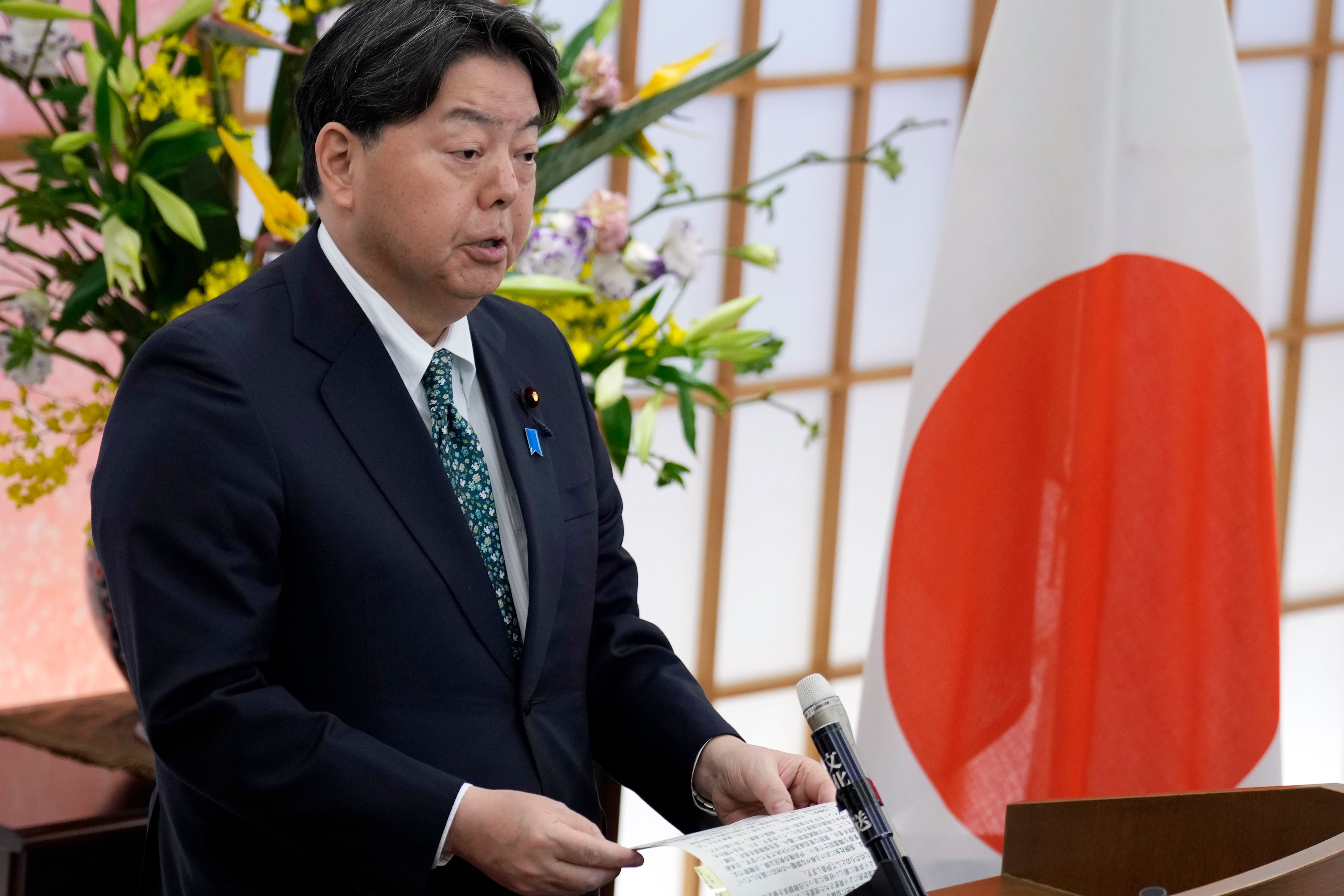Japan FM to visit China amid friction over detained Japanese
Japanese Foreign Minister Yoshimasa Hayashi says he will visit China this weekend for talks with his counterpart Qin Gang, becoming Japan’s first top diplomat to do so in more than three years amid growing frictions between the two countries including a recent flap over the detention of a Japanese national in Beijing

Japanese Foreign Minister Yoshimasa Hayashi said Friday he will visit China this weekend for talks with his counterpart Qin Gang, becoming Japan's first top diplomat to do so in more than three years amid growing frictions between the two countries, including a recent flap over the detention of a Japanese national in Beijing.
Hayashi hopes to “engage in a candid and in-depth exchange of views toward establishing a constructive and stable relationship” at his planned talks with Qin and other officials during his April 1-2 visit, he told a news conference.
He is expected to demand the release of the detained Japanese national, discuss security concerns in the region and ask China to act “responsibly” on global issues including Russia's war on Ukraine.
Hayashi noted an agreement between the leaders of the two countries to build constructive and stable relations but said “Japan-China relations are facing many challenges and concerns, although there are various possibilities (for cooperation).”
Despite close economic and business ties between the two Asian powers, Tokyo and Beijing have been increasingly at odds in recent years as Japan considers China’s growing influence in the region as a threat to its national security and the economy.
“I believe it is important to build a constructive and stable relationship while we insist on our position on some issues, seek (China's) responsible actions and continue our dialogue,” Hayashi added. His predecessor Toshimitsu Motegi's December 2019 visit to China was the last such trip made by a top Japanese diplomat.
The latest friction between the two sides is over China's detention of an employee of the Japanese pharmaceutical company Astellas Pharma earlier this month on suspicion of spying. Japan's government has demanded his release and an explanation.
China's Foreign Ministry said the Japanese citizen was suspected of “engaging in espionage activities in violation of the criminal law ... and the Anti-Espionage Law of the People’s Republic of China." Beijing also noted other similar cases by the Japanese, urging Japan's government to better educate its people on such laws.
More than a dozen Japanese citizens with business or other connections to China have been arrested in the past over allegations including spying.
Tokyo considers China a threat to its national and regional security and has been expanding its security cooperation with other “like-minded” countries in the region and Europe, as well as NATO, while promoting a vision of a “free and open Indo-Pacific" as a counter to China.
Hayashi said Friday he will travel to Brussels after his China visit to attend a NATO foreign ministers’ meeting to reaffirm Japan's commitment to the rules-based international order and reinforce cooperation between Japan and NATO in their response to Russia's invasion of Ukraine and other key issues.
Japan is also concerned about growing joint military exercises between China and Russia around Japanese coasts.
___
AP videojournalist Haruka Nuga contributed to this report.